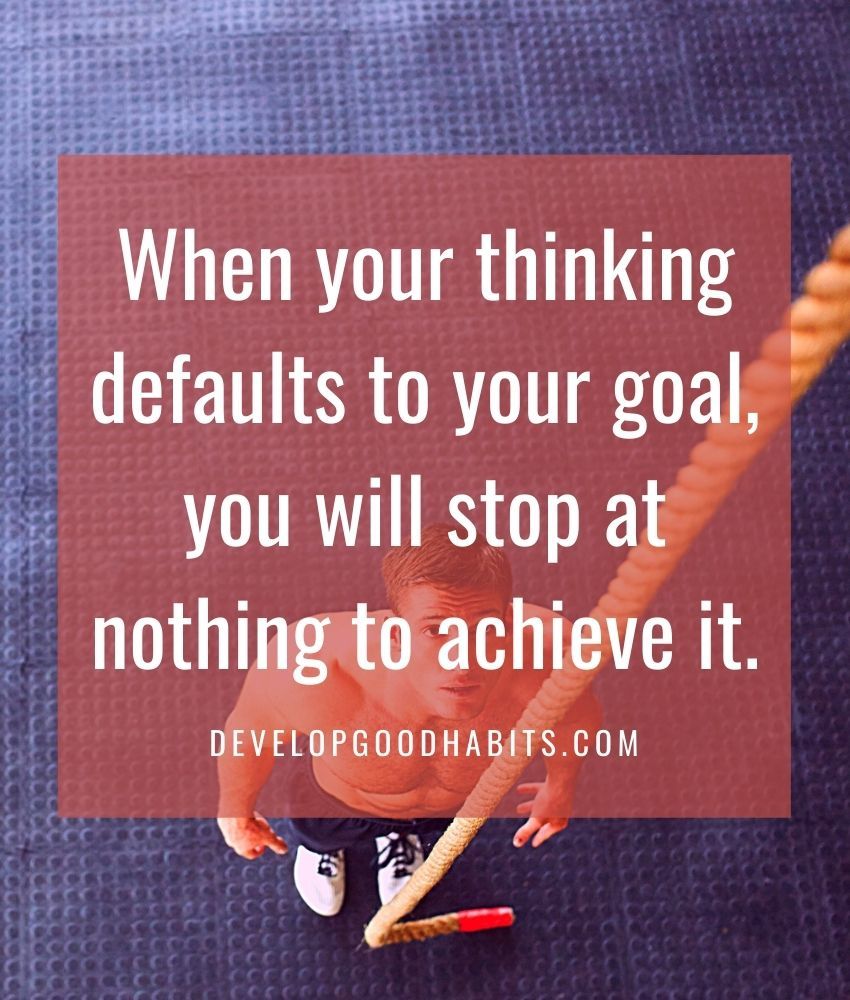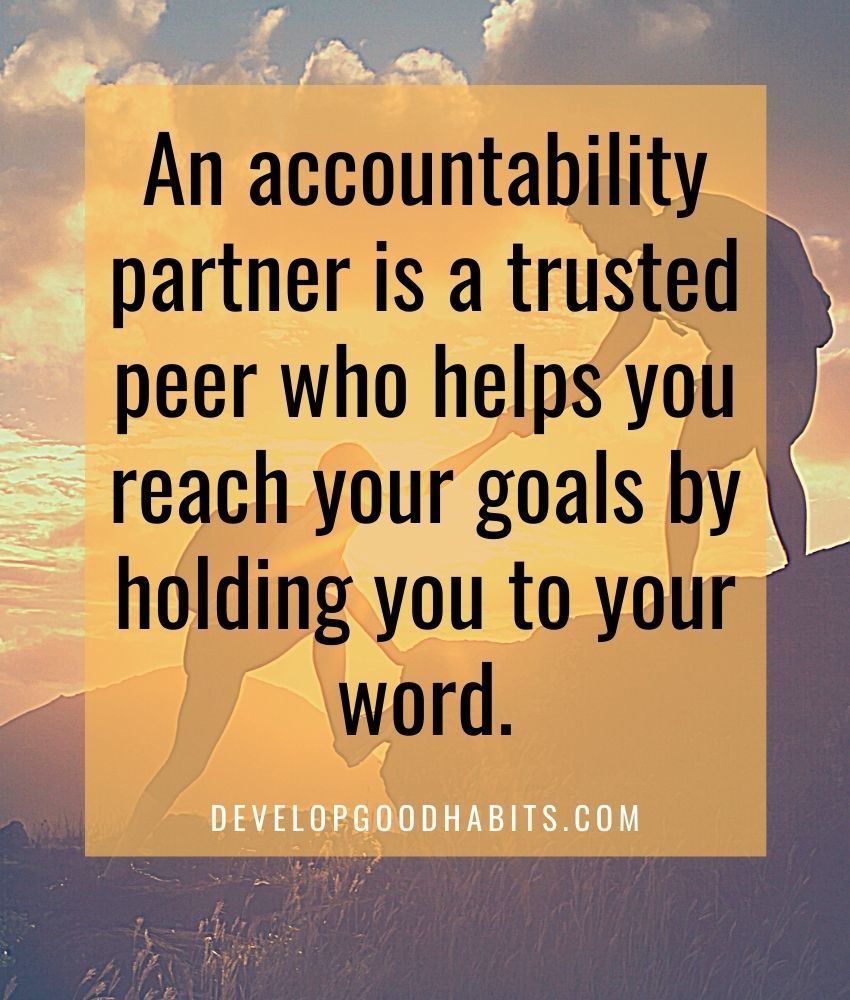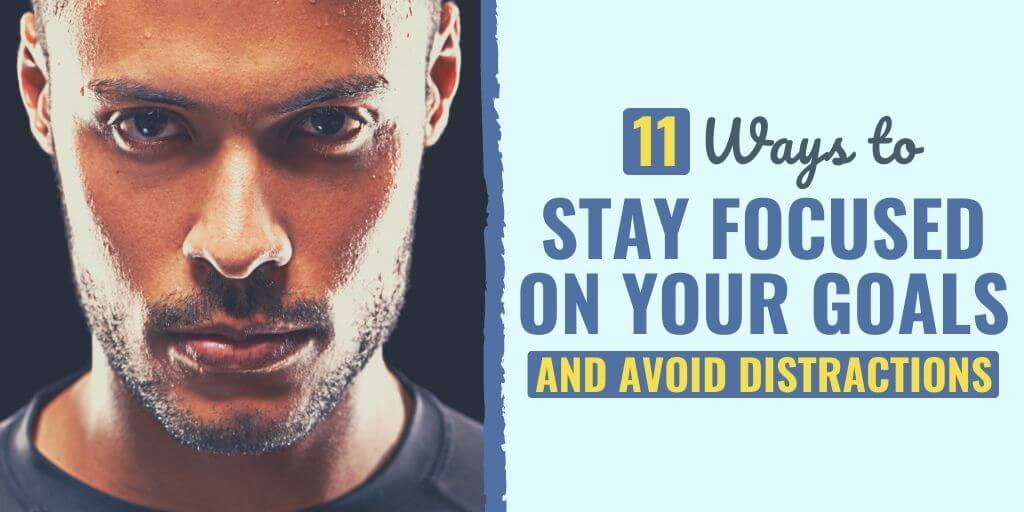I’m not an especially angry person, but I get very aggravated when I have constant distractions coming at me from all different directions.
I have sworn up and down many times that I’m “about to throw my phone out of the window” when I’m trying to concentrate on work and I keep getting interrupted.
And, when people come into my office to tell me about whatever cute thing their dog did the night before, I think my face sends an accurate message.
The good news is that I know there are things I can do to reduce this inner tension. I know if I can increase my focus, I will also be able to work more efficiently, which will therefore create a bit of time at the end of the day to address those pesky distractions that tried to force their way into my day.
In this article, we will look at 11 tips that I have found helpful in avoiding distractions so I can stay focused on my goals. I’m sure you will also find these to be advantageous to keeping your focus on point.
But before we proceed, take a few minutes to learn about Warren Buffett's 5-25 Rule. This is a good starting point if feel overwhelmed when setting goals. You'll learn the 3-step process for setting goals you can actually achieve.
11 Ways to Stay Focused on Your Goals and Avoid Distractions
1. Remove Distractions That Are Not Related to Your Goals
Do you prefer to listen to music while you’re working? Or white noise?
I know when I don’t want to work but I have to, I’ll turn on the TV so there is at least something around me that makes it seem less like work. But can you stay productive with this type of noise in the background?
Research shows that environmental noise such as background music, cars, and conversations has a negative impact on most people’s performance. However, many of these noises are easy to tune out (turn off your music, close your door, etc.), so even a little bit of a reduction can improve your performance.
One source of background noise that researchers have found to be the most damaging to others’ productivity is hearing someone say a few words here and there, with pauses in between.
To make this worse, this is also one of the most common background noises you will encounter in an office setting as your colleagues engage in small talk here and there or when someone nearby is on the phone.
However, this isn’t to say that other types of noise (music or white noise) are completely fine. A meta-analysis that reviewed the impact of listening to music on performance found that while listening to music may improve one’s mood, it’s disruptive when it comes to reading comprehension and tasks of that sort.
If you aren’t able to get away from a noisy environment when you’re trying to work, should you buy a white noise machine to drown everything out? Maybe. However, most people are more productive when they’re working in a quiet atmosphere than when they’re listening to white noise.
One study found that white noise reduced children’s ability to remember things later on when compared to no noise at all. However, kids who typically have a hard time paying attention did better when white noise was in the background.
So, unless you’re one who finds white noise to be especially helpful, try to work in silence if you can. Definitely turn off any noise that you have any control over.
Aside from background noise, turn off any automatic notifications that your computer gives you, put your phone on “do not disturb” and put a sign on your door implying that you’re working and you will be available later if someone needs you.
This will reduce the number of distractions that happen due to well-meaning coworkers, family, and friends.
2. Don’t Try to Multitask
I know you think you’re saving time by multitasking, but you’re not. Multitasking is actually really harmful for your productivity. Multitasking includes:
Doing any of the above can result in a 40% decrease in your productivity. Our brains can’t handle multitasking as much as we would hope. Why? When you multitask, you’re quickly shifting your focus from one task to another, which makes it hard to ignore distractions and can lead to brain blocks.
Stanford University professor, Clifford Nass, conducted a study that found multitasking can:
What’s more, Nass found that multitasking on a regular basis not only wastes precious time, there’s also evidence that it can reduce your overall ability to concentrate and be creative.
To stay focused on your goals and avoid distractions, you have to let your brain have the time it needs to stop one task before starting another.
For example, if you’re working on a PowerPoint presentation for work and you also need to report your monthly expenses, you have to engage in a mental shift from being creative to processing math before you can give the latter task your full focus and avoid making mistakes (because as multitasking increases, accuracy steadily decreases).
It takes just a bit of time for your brain to switch between cognitive processes, so in order to stay efficiently focused on the task at hand, you need to limit the number of times you require your brain to switch from one task to the next.
Keep the implications of multitasking in mind when you’re trying to focus on your goals. Try to pay attention to one thing at a time instead of doing several things half-heartedly, which will certainly decrease the quality of your work, which will then require extra time to go back and fix later on.
Multitasking is only one of the many bad habits that may be hindering you from focusing on your goals. Watch the video below to learn about and how to break destructive habits preventing your success.
3. Align Your Goals with Your Core Values
What are your core values, and why should you align your goals with them?
Your values are the foundational factors in life that you believe are especially important or essential.
When your goals and values align, you will feel a sense of satisfaction, happiness, and fulfillment in life.
On the other hand, if you’re working in a role that isn’t a good fit with your values, you’ll probably feel disconnected from your job. And, if it’s an extreme mismatch, you could feel miserable, which could trigger depression.
Think about this: Let’s say you pursued a career because you knew there were a lot of opportunities for growth within it. You were frequently up for promotions and big bonuses, and your career indeed did take off.
So you were very financially successful, but you were never really happy because work took up so much of your time and raising a family was among your most treasured values.
Your professional success ended up costing you that valuable time with your family. At this point, you’re lacking your desired feeling of connection with your family, which is the thing that would have fulfilled you the most in life. Your great career, on the other hand, doesn’t bring that same amount of happiness.
You also want your goals to align with your core values because it will give you an intrinsic sense of motivation to get your work done. Your motivation offers incentives to continue working toward your goal, even when facing a roadblock or some type of adversity.
When you’re intrinsically motivated, you’re not simply trying to get a paycheck at the end of the day. You’ve set your goals for a more personal reason, which gives you an internal prompt to get to work because the process itself is naturally satisfying to you.
It may take you several years and a lot of trial and error in various jobs until you understand yourself, your values, and the gravity of keeping those things aligned with the everyday work you do.
However, you need to gain a solid understanding of what is important to you in life so you can analyze your current and future situations. Your values should act as a guide to finding what unique goals fit you the best.
If you are unclear about what your core values are, start by taking this quiz. Once you have a good idea of what your values are, think about how your work aligns with them.
Perhaps you already have a solid fit, but if not, it’s not too late to gain a better understanding of yourself and then work to align your life with those things. Your sense of fulfillment and satisfaction may depend upon it.
4. Get the Important Things Out of the Way
Every day, make sure that you know which 2-3 tasks are essential to complete to make progress toward your goal.
To ensure you get these things accomplished, you have to do them first thing in the morning–because if you wait, you’re giving distractions an invitation to come in and defeat your productivity.
And, when they welcome themselves into your day, they can drain you of your willpower.
It’s pretty simple, your Most Important Tasks (MITs) are the tasks that you must accomplish today.
Of course, you will get more than 2-3 things finished each day, but the idea is that no matter what else you do on any given day, you’ve already accomplished the things that will make the greatest impact on your progress toward meeting your goal.

Making sure you focus on your goals every day will allow you to know that you’ve taken some kind of action toward making your dreams come true, so be sure to make a habit out of it.
Build time into your morning routine to complete your MITs instead of waiting until later in the afternoon, as this could lead to getting wrapped up in other things and running out of time. This is a small trick to implement, but sometimes small things can make the biggest difference.
5. Review Your Goals Daily
If you have been following DGH for a while, you know that one of the first things that you should encounter upon waking up in the morning is your vision board. If this is already the case for you, you’ve completed this step.
But, as life changes, so do your goals, and you may not have gotten to update your board yet. Or, you may be working on a shorter-term goal at the moment.

Keep your main things your main things by reviewing your goals daily. Doing so will keep them at the front of your mind so you can ensure you will spend your time and attention on the most critical tasks each day, which will make it easier to ignore distractions outside of your goal that could avert your focus.
Reviewing your goals daily is one of the most effective ways to maintain your commitment. With enough repetition, your constructive actions will become automatic. You will generate new, related ideas throughout the day and find new opportunities to make progress.
When your thinking defaults to your goal, you will stop at nothing to achieve it.
6. Do Some Momentum Management
This is another thing you need to do every day. Keeping your momentum going will ease the process of staying committed to your goals, so it’s important to not take breaks from your efforts.
If you go on a short hiatus from working toward your goal, it’s very easy to lose momentum and abandon your goal. Follow Jerry Seinfeld’s advice and don’t break the chain.
This means you need to do something every single day to move yourself closer to success. These don’t always have to be huge tasks, just anything that keeps you thinking about your target so you stay engaged in the process.
For example, if your goal is to increase your physical activity and change your diet to reach a certain weight…don’t slow down your momentum because it’s the holidays.
Go for a 5-minute walk on Christmas day– anything to maintain that momentum. Nothing huge, just something significant enough to contribute to your growth.
7. Use a Planner to Track Your Progress
Setting your goals is the easy part. Consistently ensuring that you’re making progress toward meeting them is what often gets forgotten.
If you’ve used the SMART goal method to design your goals, you will have a clear foundation to use to move forward with tracking your progress because you’ll be clear on the specific milestones you want to reach…and when you want to reach them.
In our digital age, of course you can opt to use an app, but I find it easier to use a paper planner because nothing digital is as customizable or as user-friendly as I can make something by writing it down myself.
And, in my experience, customization is an important part of reaching your goals. You have to learn what works for you, rather than trying to fit yourself into the mold of using what you hear most other people use.
By using a planner to track your progress, not only will you find that you get more done, you will also be able to go back and see how far you’ve come instead of just looking at how far you still need to go. This will allow you to always feel proud of what you’ve accomplished thus far.
Keep track of your progress using a planner to stay organized and on schedule so you will always know what your next step is, leaving little room to abandon your goals. Using a planner will prevent your goals from getting lost in your everyday life.
You need to create deadlines for every portion of your goal and record those steps in your planner to give yourself a tangible reminder that your goal is important. These deadlines will give you an action plan as well.

You should also use your planner to schedule any recurring tasks that you need to do to make headway. For example, let’s say your goal is to travel and study for a month in Spain.
In this case, one of your recurring tasks would likely be to put away money into a savings account every other week or every time you get a paycheck. Record how much money you need to set aside and which account you want to keep it in. Upon recording this in your calendar, you will be eliminating the risk of forgetting this important task.
8. Break Down Your Goals Into Small Parts
A quick way to ruin your focus is to only look at the big picture of your goal. Assuming you’re working on a goal that will take at least a few months to accomplish, without breaking it down, you’re likely to become discouraged because your goal seems like too much work. Instead, focus on a small amount of work at a time.
Your goals need to be manageable and chances are, at first glance, it doesn’t seem so simple. So it’s best to break it down into several parts that are individually manageable.
There are several ways that you can do this, but here are three examples of effective methods of doing this:
1. Break your goals down by time
For example, set aside 10 minutes every morning to meditate or dedicate 45 minutes to walking every night after work. Or, you can break down your goals into daily, weekly, or quarterly sections–this all just depends on the type of goal you have and what works best for you.
2. Portion them by quantity
For example, read one book per month or write 1000 words per day.
3. Simplify them with actionable steps
For example, if your goal is to get your MBA, your first step may be to research schools. The next day, research student loan options; then, look at all of the prerequisites you need in order to apply, etc. Write each one of these actionable steps down on paper and complete them one day at a time.
To create actionable steps, first consider what you can do right now to get started. Then, write down what task needs to be done next. And then next after that.
Continue this one step at a time until you’ve completed your first objective. When you’ve completed an objective, move onto the next one until your goal is complete.
Just make sure each actionable step you make is meaningful–as in, the task has to be something that will help you move closer to achieving whatever objective you’re working on.
9. Practice Focusing
Research has shown it takes about 25 minutes to get back on track after getting distracted with something when you’re trying to focus on your work.
I know this is a huge stumbling block for me that makes distractions especially aggravating. However, there are some cognitive exercises that you can do to improve your self-discipline when focusing on your work.
Here are some resources to help you improve your everyday focus:
These attention-improving tips are great for getting your smaller tasks done that will add up to reaching your ultimate goal.
10. Find an Accountability Partner
An accountability partner is a trusted peer who helps you reach your goals by holding you to your word. After telling them your goal, they will stay on top of you for progress updates, potentially offer guidance or suggestions, and support you along the way.
If you can, team up with someone who also needs an accountability partner so it can be a mutually beneficial relationship.

When you’re getting consistent feedback from someone else who is also counting on you to follow through with your action plan, you will be more likely to stick with it–even when you’re facing a hurdle. In fact, an accountability partner can help you move through hurdles, if necessary.
Here are some more benefits of having an accountability partner to help you stay focused on your goals and avoid distractions.
11. Get Up Early
Sorry, but if you think about it, this makes a lot of sense. You’re literally adding time to your day if you get up earlier–and the time that you’re adding is probably pretty peaceful since others are asleep.
You can use this time to organize your day (because, as Brian Tracy says, “Every minute you spend in planning saves 10 minutes in execution”), or you could use this time each day to review your goals, focus on your MITs, etc. But giving yourself some more time to focus is the best thing you can do to reach your goals faster.
If you need some help, here are some actionable steps you can take to start waking up earlier. And, if you need more motivation, here are some long-term benefits to waking up early that you can keep in mind on those days that you want to hit the snooze button.
Finally, here is a neat tool that can help you figure out what time you should go to bed to get the best sleep according to what time you want to wake up.
Final Thoughts on Staying Focused on Your Goals
Distractions can range from being mildly irritating to being completely damaging to your personal and professional intentions. Don't sweat the small stuff and remember to not let things bother you too much.
A plan is only effective if you follow through by taking the appropriate action. Pick a few of these tips to start with and commit to them today. Soon enough, you will realize that you do have a good amount of control over preventing distractions from getting in your way.
And if you want more resources about focusing on your goals, be sure to check out these blog posts:
- 35 Good Daily Habit List To Transform Your Life
- 7 Best Ambient Noise Apps to Help You Focus and Increase Productivity
- 17 Simple Ways to Improve Your Work Performance
Finally, if you want to take your goal-setting efforts to the next level, check out this FREE printable worksheet and a step-by-step process that will help you set effective SMART goals.

Connie Mathers is a professional editor and freelance writer. She holds a Bachelor's Degree in Marketing and a Master’s Degree in Social Work. When she is not writing, Connie is either spending time with her daughter and two dogs, running, or working at her full-time job as a social worker in Richmond, VA.


